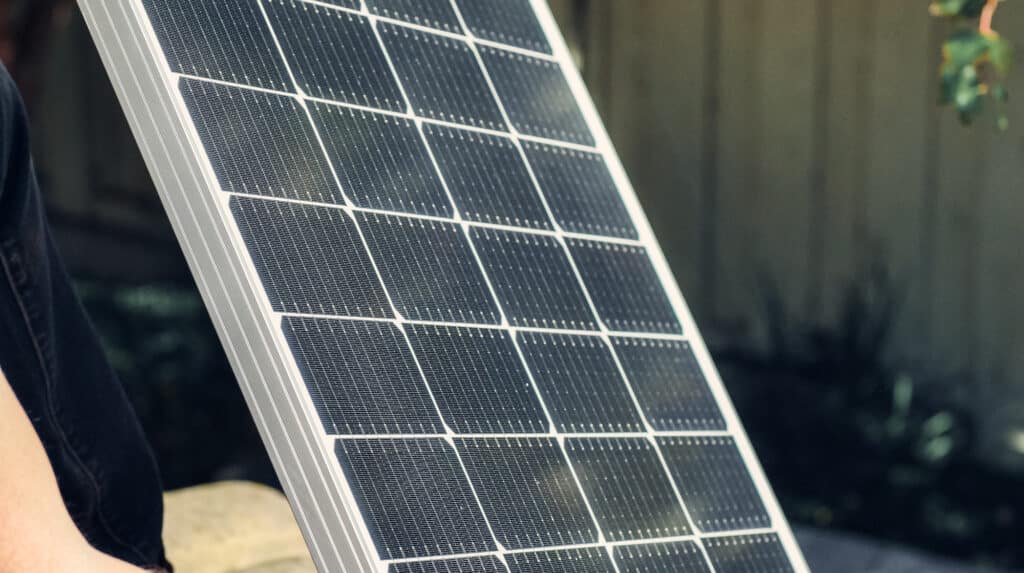New Hampshire’s snowy climate and limited solar policies have slowed its growth of solar — the state ranks 41st in the nation for installed solar capacity. However, residents can still enjoy numerous benefits by installing solar power with the best solar companies in New Hampshire, including SunPower, Sunrun and Venture Solar.
We at the MarketWatch Guides Team selected the best solar providers based on in-depth market research, detailed consumer surveys and discussions with industry experts. Read on to learn about our top picks for New Hampshire residents looking to go solar.
What To Look For in a Solar Company
Solar power is a major home upgrade in terms of initial expense and potential savings over time. Below are a few factors to consider when deciding on a solar installer.
- Cost and financing: For many homeowners, the cost is one of the most decisive factors when choosing a contractor. Despite the substantial energy savings solar panels can offer, a system can cost between $15,000 to $20,000 or more — and a difference of even a few hundred dollars can feel significant. But the cheapest system may not be the most reliable. Try to strike a balance between cost, features and warranties. You can also choose an installer with multiple payment options, such as solar loans, leases or power purchase agreements (PPAs).
- Trustworthiness: Most solar panel systems have a lifespan of 25 to 30 years, and high-quality installations with robust warranties can ensure your panels perform over that time. However, sloppy installations can lead to poor performance and the need for regular maintenance. This makes trustworthiness another important factor to consider when comparing installers. A reliable installer should have a skilled and experienced installation team and respond swiftly to warranty or maintenance requirements. You can check the trustworthiness of solar companies by checking Better Business Bureau (BBB) ratings and reading existing customer reviews.
- Services offered: When it comes to energy efficiency, solar panels can be just one part of the equation. Your home may also benefit from insulation, lighting or air conditioning upgrades. Some homes may need a new electrical panel or roof before installing solar panels. Many solar companies offer multiple services to make it easier for customers to get everything in one place. It is a good idea to list the services your home may require before contacting installers.
Compare New Hampshire Solar Companies
A 6 kilowatt (kW) solar energy system in New Hampshire costs around $18,390 or $3.07 per watt. This rate is slightly higher than the average cost of solar panels nationwide, which is $2.85 per watt. Here is the pricing information for our picks for New Hampshire’s best solar companies:
*Pricing data is based on responses to our March 2023 solar survey of 1,000 homeowners with 10 kilowatt (kW) solar systems. Venture Solar was not included in the survey. BBB ratings are accurate as of June 2023.
Our Recommendation
New Hampshire has 61 solar companies, which may not seem like a lot compared to other states, but choosing the right installer can still seem difficult. Homeowners looking for reputable companies with longstanding experience can go with SunPower or Sunrun. Homeowners seeking a simple, reliable process with a local installer may prefer Venture Solar.
Other notable solar companies in New Hampshire include ReVision Energy, Granite State Solar and AllEnergy Solar. Ultimately, the best solar company for you will depend on your location, energy needs and budget. When making the final decision, we recommend requesting free quotes from multiple installers to compare your options.
Benefits of Going Solar in New Hampshire
Solar energy can be beneficial whether you live in Concord, Nashua, Manchester or another part of New Hampshire. Here’s why:
- Utility bill savings: The main advantage of installing solar panels is replacing your grid power consumption with electricity generated by sunlight, which is free. Depending on your roof size and energy needs, solar power systems can reduce your monthly electricity bills by offsetting up to 100% of your grid power usage. New Hampshire residents pay over 31 cents per kilowatt-hour (kWh) for electricity — twice the national average. So New Hampshirites can save significantly more money by generating their own electricity using solar panels.
- Environmental impact: Going solar not only helps your wallet, but also the environment. Unlike fossil power, solar panels generate power from a non-polluting, clean energy source (the sun). Each kilowatt-hour of solar power helps offset carbon emissions generated using grid power. A solar power system can offset thousands of pounds of carbon emissions over its lifetime, lowering your carbon footprint.
- Protection against rising power costs: Between March 2022 and March 2023, New Hampshire’s average electricity cost jumped from 22.98 cents per kWh to 30.30 cents per kWh — a nearly 7% increase. Due to this, homeowners without solar panels saw a massive, 30% jump in their power bills. However, for homes with solar panels, the impact of this rise was much lower. Electricity rates constantly increase over time and depend on global factors such as pandemics, wars and supply chain issues. New Hampshire residents can protect themselves from power price increases for many decades by installing solar panels.
- Security against blackouts: On average, New Hampshire experiences a thunderstorm and lighting hazard every 12.5 days between October and March. The state also sees a winter storm every 20.5 days, on average. These weather events can cause power outages, leaving homeowners in the dark and cold for hours or sometimes days. Residents with a solar system and backup battery can keep their essential appliances running through a multi-day blackout, which adds resilience to their homes.
- Increased home value: Thanks to the benefits of solar panels, multiple studies suggest that homes with a solar array sell for more than comparable homes without solar. A study by Zillow showed that homes with solar panels sold for 4% more on average. This number is even higher in some areas, potentially offsetting the cost of a rooftop solar power system. In short, property owners can also benefit from solar panels when they sell their homes.
New Hampshire Solar Incentives
New Hampshire does not have a large number of solar rebates and incentives compared to some other states, like Massachusetts or New York. However, residents of the Granite State can still save thousands by claiming the federal solar tax credit.
There are two main state incentives available in New Hampshire. Utility companies like Eversource and Unitil do not currently offer rebate programs but have in the past. Below is an overview of the available incentives in New Hampshire.
Federal Incentives
The federal solar tax credit is one of the most important solar incentives available to New Hampshire residents. While not a direct rebate, the solar Investment Tax Credit (ITC) allows U.S. residents to deduct up to 30% of their solar system cost from their income tax burden. You can claim the credit once for the year you install a solar system. The net effect of the incentive results in a 30% reduction in your total cost of the system, leading to a faster payback period and greater savings over time.
Statewide Incentives
New Hampshire offers two main solar incentives, including:
Methodology: Our System for Ranking the Best Solar Companies
We closely evaluated seven crucial factors for comparing solar panel installation companies. Based on a 100-point scale, we came up with each provider’s score out of five stars. Here’s how we assessed each company:
- Cost and payment options (20 points): Companies that offer cash purchases and in-house loan financing earned full points in this category. Companies also receive bonus points if they offer solar panel leasing or power purchase agreements (PPAs).
- Services (20 points): Besides solar installations, companies offering backup battery and electric vehicle (EV) charger installations, energy efficiency audits and system monitoring earned the most points in this category. We also allotted points to companies that completed all their installations in-house (as opposed to contracting out installers).
- Reputation (20 points): We considered each company’s Google star rating, BBB customer review rating, BBB customer complaint response rate and NABCEP certification status to award each company its reputation score.
- Warranty (15 points): We verified that each company offers workmanship, product and performance warranties on all of its solar installs. Providers earned more points if their warranties were at or above the industry-standard length (10 years for workmanship and product warranties and 25 years for performance warranties).
- Customer support (10 points): Solar companies that offered virtual consultations, a mobile app, 24/6 customer support and high customer satisfaction with backend support earned the most points in this category.
- Industry experience (10 points): Providers with 10 or more years of experience in the solar installation industry earned a perfect score in this category.
- Sustainability (5 points): Companies with a detailed sustainability statement, ESG disclosures, end-of-life panel disposal programs and community partnerships earned all five points in this category.
Aniket Bhor is a solar engineer who has spent nearly a decade studying and working in the solar power sector in the European, Asian and North American markets. He is a climate enthusiast and avid cyclist, and he also loves to lose himself in books and cooking.
Tori Addison is an editor with over five years of experience in the digital marketing industry. Her includes communications and marketing work in the nonprofit, governmental and academic sectors. A journalist by trade, she started her career covering politics and news in New York’s Hudson Valley. Her work included coverage of local and state budgets, federal financial regulations and health care legislation.
Read the full article here








